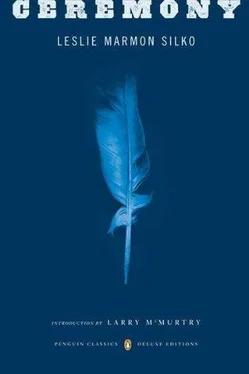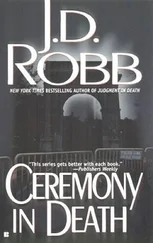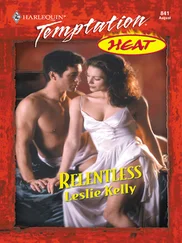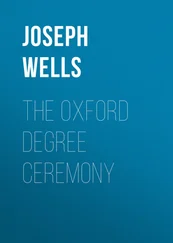The lie. He cut into the wire as if cutting away at the lie inside himself. The liars had fooled everyone, white people and Indians alike; as long as people believed the lies, they would never be able to see what had been done to them or what they were doing to each other. He wiped the sweat off his face onto the sleeve of his jacket. He stood back and looked at the gaping cut in the wire. If the white people never looked beyond the lie, to see that theirs was a nation built on stolen land, then they would never be able to understand how they had been used by the witchery; they would never know that they were still being manipulated by those who knew how to stir the ingredients together: white thievery and injustice boiling up the anger and hatred that would finally destroy the world: the starving against the fat, the colored against the white. The destroyers had only to set it into motion, and sit back to count the casualties. But it was more than a body count; the lies devoured white hearts, and for more than two hundred years white people had worked to fill their emptiness; they tried to glut the hollowness with patriotic wars and with great technology and the wealth it brought. And always they had been fooling themselves, and they knew it.
The cut in the fence was a good twenty feet wide, large enough for the cattle to find. He walked back to the horse and put away the pliers. He poured water over the raw skin on his hands and drank what was left in the canteen; he pissed one more time.
The moon was bright, and the rolling hills and dry lake flats reflected a silvery light illusion that everything was as visible as if seen in broad daylight. But the mare stumbled and threw him hard against the saddle horn, and he realized how deceptive the moonlight was; exposed root tips and dark rocks waited in deep shadows cast by the moon. Their lies would destroy this world.
The trail was splashed with cow manure, and he reined the mare in frequently to lean down from the saddle to see how fresh it was. The farther west the trail went, the higher it was; the pines were tall and thick, and brushy piñon and cedar filled the spaces between the big trees, blocking out nearly all the light. He walked the mare, letting her find a way along the trail where trees and brush had closed in on both sides. He kept his head low, and his eyes closed for protection against the pine needles and sharp branches.
He stopped on the edge of the clearing. The air was much colder. He had been so intent on finding the cattle that he had forgotten all the events of the past days and past years. Hunting the cattle was good for that. Old Betonie was right. It was a cure for that, and maybe for other things too. The spotted cattle wouldn’t be lost any more, scattered through his dreams, driven by his hesitation to admit they had been stolen, that the land — all of it — had been stolen from them. The anticipation of what he might find was strung tight in his belly; suddenly the tension snapped and hurled him into the empty room where the ticking of the clock behind the curtains had ceased. He stopped the mare. The silence was inside, in his belly; there was no longer any hurry. The ride into the mountain had branched into all directions of time. He knew then why the oldtimers could only speak of yesterday and tomorrow in terms of the present moment: the only certainty; and this present sense of being was qualified with bare hints of yesterday or tomorrow, by saying, “I go up to the mountain yesterday or I go up to the mountain tomorrow.” The ck’o’yo Kaup’a’ta somewhere is stacking his gambling sticks and waiting for a visitor; Rocky and I are walking across the ridge in the moonlight; Josiah and Robert are waiting for us. This night is a single night; and there has never been any other.
In the clearing he expected to see them: some standing, others lying down, the color of their hides reflecting the moon like snow on the mountain peaks. But he found nothing, and at the seventh or eighth clearing he stopped to listen for them; there was only the rattle of the bit as the mare chewed the grass she had sneaked when they stopped. He jerked her head up from the grass to rid her of any ideas she might have about grazing.
His anger excluded everything but the horse. If he did not break her of the habit right now, she would try to get away with it all the time. He remembered the old black gelding: as long as Josiah had been there watching, the old black horse loped slowly around the big corral; it stood patiently while Rocky slid down its shoulder and then boosted Tayo up. But after Josiah went inside the shed to repair bridles, the old horse began to test them. It no longer loped; it trotted. Tayo’s teeth rattled together and he had to grip the wiry mane with both hands; his bottom hurt from bouncing against the sharp backbone; and when it felt the loose reins, the black gelding stopped trotting and walked over to the tender green tumbleweed shoots that grew along the fence. Rocky ran over and handed the reins back up to him, and he yelled at the old horse and kicked both heels into its ribs. It raised its head and seemed surprised for a moment, but Tayo wasn’t strong enough to pull the big head around or keep it away from the weeds; and the gelding went back to nibbling weeds again, acting as if the two little boys were not there. They didn’t want Josiah to know that the old horse had won, because Josiah always said that if they couldn’t make the horse behave, then they had no business riding it. So they pretended they were tired of riding, and let the old horse loose. As it lumbered out of the corral toward the river, they pelted it with rocks and sticks, and Rocky yelled at it. Josiah came out of the shed to see what all the noise was about; he scolded them for throwing rocks at the old horse, but he had a hard time to keep from smiling.
“So that old horse won, huh?” he said, almost laughing. “Even got you throwing rocks and yelling at him.”
He reined the mare in tight and kept his heels hard against her sides to let her know he meant business. Josiah had always shown them how ridiculous violence and anger were; beating the mare would not make the spotted cattle appear.
He stopped at a wide shallow stream and dismounted while the mare drank. She had traveled for hours without water; now she swelled out her sides drinking. She let out a deep sigh when she was finished and shook herself; she was tired. As he led her away from the stream, he felt the muscles in his thighs get shivery, and his knees were tight and sore from hours in the saddle and from kneeling on the rocks to cut the wire. His hands hurt, and his fingers were still swollen with blisters from the pliers. He knew what was happening. In the sky above the clearing, Orion had fallen over the south edge; he was running out of night. His stomach tensed up again. Whatever night this was, he still had a big hole cut in their fence, and he had to find the cattle and get them out before the fence riders found the break. They would be after him then, tracking him, hunting him down as they had hunted the last few bears on the mountain. His chest was aching with anger. What ever made him think he could do this? The woman under the apricot tree meant nothing at all; it was all in his own head. When they caught him, they’d send him back to the crazy house for sure. He was trapped now, tricked into trying something that could never work.
He still had time to get back. He could pull the sections of wire together and twist the strands into place, and then ride like hell off the mountain. They’d never know who did it; they’d blame Mexicans from Marquez. It would be the smartest thing he could do. All the rest — old Betonie and his stargazing, the woman in her storm-pattern blanket — all that was crazy, the kind of old-time superstition the teachers at Indian school used to warn him and Rocky about. Like the first time in science class, when the teacher brought in a tubful of dead frogs, bloated with formaldehyde, and the Navajos all left the room; the teacher said those old beliefs were stupid. The Jemez girl raised her hand and said the people always told the kids not to kill frogs, because the frogs would get angry and send so much rain there would be floods. The science teacher laughed loudly, for a long time; he even had to wipe tears from his eyes. “Look at these frogs,” he said, pointing at the disclored rubbery bodies and clouded eyes. “Do you think they could do anything? Where are all the floods? We dissect them in this class every year.” As the Army doctors had told him: it was all superstition, seeing Josiah when they shot those goddamn Japs; it was all superstition, believing that the rain had stopped coming because he had cursed it.
Читать дальше












